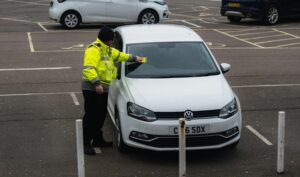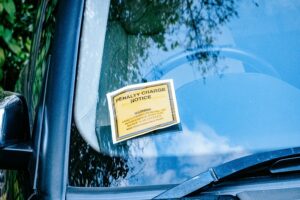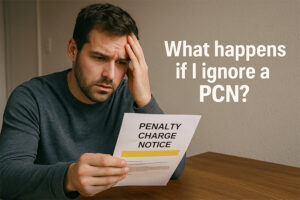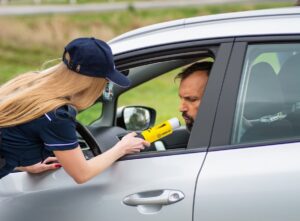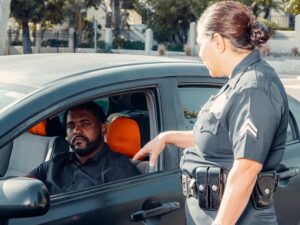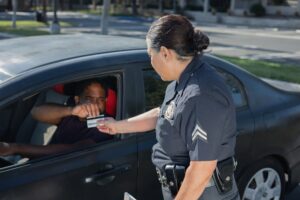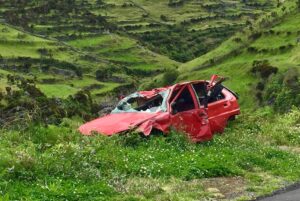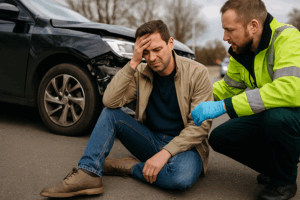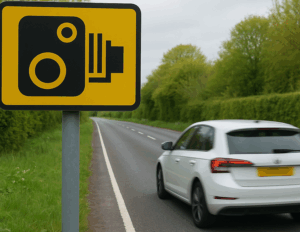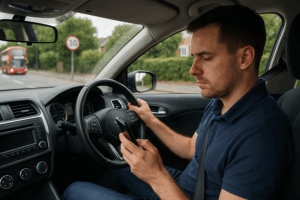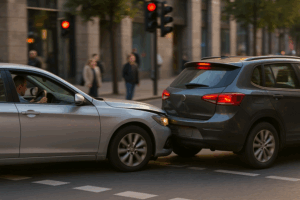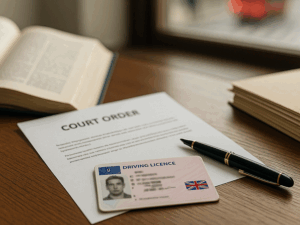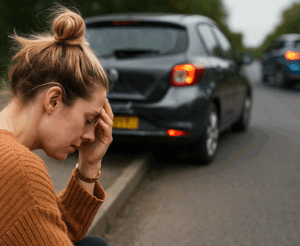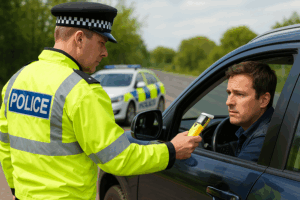What happens if you get caught driving without insurance?

That sinking feeling hits when you realise your insurance lapsed yesterday, and today you’re staring at a police officer asking for your documents. Driving without insurance isn’t just breaking a rule; it’s a serious criminal offence with consequences that extend far beyond a simple driving insurance fine. You’re facing potential job loss, criminal records, and substantial costs that could impact you for years. Many drivers think they can talk their way out or that first-time offences get lenient treatment; they’re wrong. However, special circumstances and legal defences do exist, and knowing them could make all the difference. Specialist motoring law solicitors understand these cases inside out.
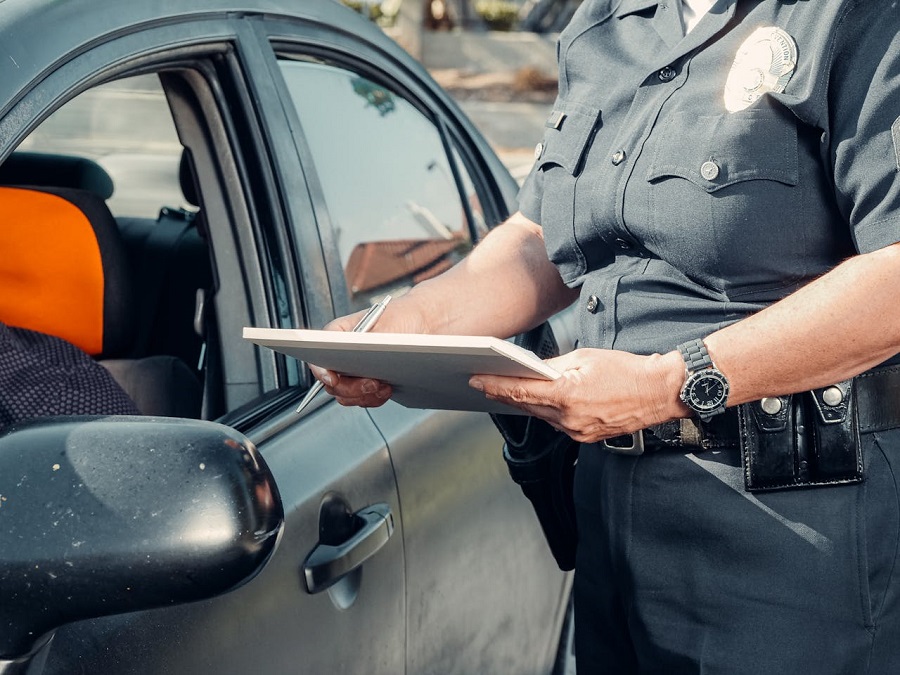
Key Takeaway: What happens if you get caught driving without insurance?
Uncover the shocking penalties, hidden defences, and legal loopholes that could save your licence.
Why UK law requires motor insurance
The Road Traffic Act 1988 makes motor insurance compulsory for every vehicle on public roads; no exceptions, no excuses. This legal requirement exists to protect innocent victims and society from the severe financial consequences of road accidents.
The law demands insurance for several reasons:
- Road safety: Creates financial incentives for safer driving through premium structures.
- Social responsibility: Transfers catastrophic risk from individuals to insurance companies with deeper pockets.
- Victim compensation: Ensures injured parties receive payment regardless of the at-fault driver’s financial situation.
- Public protection: A single crash can generate millions in compensation claims for injuries, deaths, and property damage.
Section 143 specifically criminalises driving without insurance as a strict liability offence. This means your intentions, knowledge, or genuine mistakes are irrelevant; if you’re caught driving without insurance, you’re guilty. The IN10 offence code reflects Parliament’s view that uninsured drivers pose an unacceptable risk to society, which explains why courts impose such harsh penalties on those riding without insurance.
What happens when you’re caught driving without insurance
Police officers have extensive powers to detect and act upon insurance offences through sophisticated roadside technology and legal authority. The moment they discover you’re driving without insurance; a cascade of consequences begins that can escalate rapidly beyond your control.
Police powers and roadside checks
Modern policing uses Automatic Number Plate Recognition (ANPR) cameras that instantly check your vehicle against the Motor Insurance Database. Officers can also conduct random stops under Section 163 of the Road Traffic Act, demanding to see your insurance certificate on the spot. If you cannot produce valid insurance, they have powers to:
- Issue a Section 1 notice requiring documents within seven days.
- Conduct roadside checks of the Motor Insurance Database.
- Arrest you if they suspect fraud or false documentation.
- Issue fixed penalty notices for straightforward cases.
Vehicle seizure and recovery costs
Police will seize your vehicle under Section 165A powers when you’re caught driving without insurance. This isn’t negotiable; your car gets towed whether it’s worth £500 or £50,000. Recovery involves:
- Towing fees of £150-£200.
- Daily storage charges of £20-£25.
- Vehicle disposal if unclaimed after 14 days.
- Total costs often exceeding £500 within a week.
- Release fees requiring proof of insurance and ownership.
Penalty for driving without insurance: Fixed penalty notices and court fines
The driving insurance fine system operates on two levels, with costs escalating dramatically if your case reaches court. Financial driving uninsured penalties represent just the starting point of your total expenses when caught driving without insurance.
Fixed penalty notices
Police can issue an on-the-spot Fixed Penalty Notice (FPN) for straightforward no insurance driving cases. This streamlined process involves:
- £300 fixed penalty fine.
- 6 penalty points on your licence.
- 28 days to pay or contest the charge.
- No court appearance required if you accept guilt.
- Option to attend a driver awareness course in some areas.
Maximum court fines
Court proceedings apply when you contest the charge or police deem your case too serious for an FPN. The maximum fine for driving without insurance reaches severe levels:
- Disqualification possible in serious cases.
- Fines calculated using weekly income guidelines.
- Higher penalties for repeat offenders or aggravating factors.
- Typical fines range from £300-£2,500 depending on circumstances.
- Unlimited fines in magistrates’ courts (previously capped at £5,000).
Insurance criminal record: Points and disqualification
Is driving without insurance a criminal offence? Absolutely, it creates a permanent criminal record alongside driving penalties that can destroy careers and future opportunities.
Penalty points system (IN10 offence code)
The driving without insurance offence code IN10 carries mandatory penalty points that remain on your licence for years:
- 6-8 penalty points standard allocation.
- Insurance companies access this data for 5+ years.
- Points remain visible for 4 years from conviction date.
- New drivers face licence revocation with 6+ points within 2 years.
- How many points for driving without insurance depends on case severity.
Driving disqualification risks
Courts possess discretionary powers to impose driving bans beyond penalty points:
- Totting up bans if you reach 12+ points.
- Ban lengths typically 6-12 months minimum.
- Discretionary disqualification for serious cases.
- Retesting requirements possible for longer disqualifications.
- Exceptional hardship arguments rarely succeed for insurance offences.
Criminal record implications
A driving without insurance criminal record appears on various background checks:
- Professional licensing bodies may impose sanctions.
- Travel restrictions to countries like USA and Canada.
- Employment screening reveals motoring convictions.
- Standard and Enhanced DBS checks show convictions.
- Conviction becomes ‘spent’ after 5 years under Rehabilitation of Offenders Act.
Insurance defence: Special circumstances and legal arguments
Driving without insurance special reasons can save your licence and reduce penalties when exceptional circumstances apply. Courts recognise that some situations justify departing from standard driving without insurance sentencing guidelines, though success requires expert legal argument and compelling evidence.
Emergency situations
Genuine emergencies may provide complete defences or mitigate penalties for uninsured driver cases:
- Fire, flood, or immediate danger situations.
- Driving to prevent serious crime or assist police.
- Medical emergencies requiring hospital transport.
- Defence of duress where threatened with violence.
- Emergency must be immediate and unforeseeable.
- Necessity defence requires no reasonable alternative existed.
Reasonable belief defence
Courts accept defences where defendants genuinely believed they held valid insurance coverage:
- Family member’s insurance covering vehicle use.
- Insurance broker failures leading to policy lapses.
- Recent policy purchase with delayed documentation.
- Bank error causing direct debit failures without notification.
- Defence requires honest belief based on reasonable grounds.
- Reliance on employer’s insurance assurances for company vehicles.
Special reasons arguments
Driving without insurance special reasons avoid penalty points while maintaining conviction validity:
- Vehicle moved for safety reasons in car parks.
- Insurance lapsed very recently without knowledge.
- Courts apply strict four-part legal test for acceptance.
- Very short driving distances (typically under 100 metres).
- Driving on private land mistakenly believed to be public road.
- Special reasons don’t avoid conviction but prevent endorsement.
Do I need a criminal law solicitor if caught driving without insurance?
Driving without insurance cases appear deceptively simple but involve complex legal principles that untrained defendants consistently mishandle. The stakes are too high for self-representation experiments.
Why legal representation is essential:
- Technical defences: Insurance offences involve intricate statutory requirements and case law that laypeople cannot navigate effectively.
- Special reasons arguments: Successfully arguing driving without insurance special reasons requires expert knowledge of the four-part legal test and persuasive advocacy skills.
- Penalty mitigation: Experienced solicitors reduce fines, avoid disqualification, and minimise punishment for driving without insurance through strategic sentencing arguments
- Court procedures: Magistrates expect proper legal procedure; self-represented defendants often inadvertently damage their cases through procedural errors.
- Negotiation power: Prosecutors more readily accept plea bargains and reduced charges when dealing with professional legal representatives.
- Emergency defences: Complex defences like duress, necessity, or reasonable belief require expert legal construction and compelling evidence presentation.
FAQs
- How to report someone driving without insurance UK? Contact police on 101, report online through your local police website, or call Crimestoppers anonymously on 0800 555 111. Provide vehicle registration, location, and time observed.
- Can you get arrested for driving without insurance? Police can arrest you for driving without insurance, especially if they suspect fraud, you have outstanding warrants, or cannot provide proper identification.
- Can you go to prison for driving without insurance? Yes, up to 6 months custody is possible, though rare. Prison typically applies to repeat offenders with serious aggravating factors. Community orders are more common.
Driving without insurance carries severe consequences including substantial fines, penalty points, criminal records, and potential disqualification. While defences exist, the complexity of motoring law demands professional legal representation to minimise penalties and protect your future.
Protect your driving licence!
The specialist motoring solicitors listed on Qredible’s network have successfully defended thousands of uninsured driver cases, providing legal protection and expert representation.
KEY TAKEAWAYS
- Driving without insurance is a serious criminal offence under UK law that results in 6-8 penalty points, fines up to £5,000, vehicle seizure, and a permanent criminal record that affects employment and travel opportunities.
- Police have extensive powers to detect uninsured drivers through ANPR technology, conduct roadside checks, seize vehicles immediately, and impose fixed penalties or court proceedings depending on case circumstances.
- Legal defences and driving without insurance special reasons exist for emergency situations, reasonable belief cases, and exceptional circumstances, but require expert legal representation to argue successfully in court.
Articles Sources
- gov.uk - https://www.gov.uk/vehicle-insurance/driving-without-insurance
- rac.co.uk - https://www.rac.co.uk/drive/advice/legal/driving-without-insurance/
- devon-cornwall.police.uk - https://www.devon-cornwall.police.uk/police-forces/devon-cornwall-police/areas/about-us/local-support-and-guidance/driving-without-insurance
Do you need a solicitor?
Find a solicitor on Qredible in just a few easy steps











